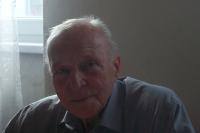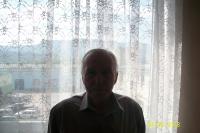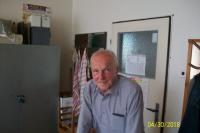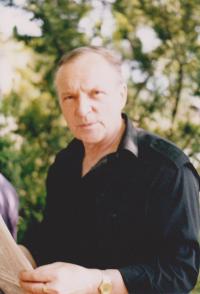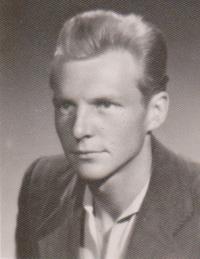„We actually didn’t even have a father. There was the war – he was gone, then there was the Uprising – he was gone again, and when the year 1949 came, he was gone for good.“

Stáhnout obrázek
Radomír Žingor was born on September 20, 1936 in Bystrička near Martin. He attended the elementary school in Bystrička and the middle school in Martin. In summer 1943 his father Viliam Žingor refused to enlist in the Eastern frontline and left to mountains, where he organized partisan movement in Turiec region. Shortly after the outbreak of the Slovak National Uprising (SNP), in dramatic circumstances, his family had to hide at various places. In November 1949, Viliam Žingor along with other app. 200 people from his surroundings were arrested and tried. It was one of the biggest fabricated processes in Slovakia as well as in the whole Czechoslovak Republic that took place on October 18 - 21, 1950 in Bratislava. In this trial, he was sentenced to death penalty, which was executed on December 18, 1950. Such fabricated persecution and execution of the father affected the whole family. Radomír wasn‘t allowed to study and when being 18 years old, he got employed as an assistant worker in FERONA enterprise. In years 1955 - 1957 he underwent the compulsory military service in Auxiliary Technical Battalions. In 1960 he graduated at evening technical school and since 1965 he worked in Heavy Engineering Plant (ZŤS) in Martin. However, due to involvement in protests against the Warsaw Pact Troops‘ invasion, in times of normalization he was hindered to reach further salary and career advancement. In 1989 he joined the politics, became a member of the Public against Violence movement (VPN) and in elections on June 8 - 9, 1990 he was appointed into the National Council of the Slovak Republic. There he became the Head of Parliamentary Committee on Trade and Services. He was reappointed also in 1992 as a member of the Movement for Democratic Slovakia (HZDS), where he resigned in 1994. After leaving the politics, he was a director of the children‘s home in Martin. Nowadays he is retired and is the Regional Chairman of the Slovak Union of Anti-Fascist Fighters.
